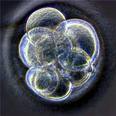Young adults conceived through sperm donation are hurting more, are more confused, and feel more isolated from their families compared to their naturally conceived peers, a ground-breaking new study on donor conception has  found.
found.
The report, My Daddy’s Name is Donor: A New Study of Young Adults Conceived through Sperm Donation [1], was published yesterday by the Institute of American Values and Family Scholars
It found that donor-conceived adults fare worse than their peers raised by biological parents on important outcomes such as depression, delinquency and substance abuse.
The authors spoke to a representative sample of 485 adults between the ages of 18 and 45 years old who said their mother used a sperm donor to conceive them.
They also assembled comparison groups of 562 young adults who were adopted as infants and 563 young adults who were raised by their biological parents.
According to the report, co-authored by Elizabeth Marquardt, Norval Glenn, and Karen Clark, 45 per cent of young adults conceived through sperm donation are bothered by the circumstances of their conception.
Nearly two-thirds, 65 per cent, felt that, “My sperm donor is half of who I am.”
Nearly half of those surveyed (45 per cent) were bothered that money changed hands in order to facilitate in their conception.
Forty-two percent of donor offspring, compared to 24 percent from adoptive families and 21 percent raised by biological parents, agree, “It is wrong for people to provide their sperm or eggs for a fee to others who wish to have children.”
When they grow up, donor offspring are more likely to agree, “I don’t feel that anyone really understands me,” with 25 percent of them agreeing strongly, compared to 13 percent of the adopted and nine percent of those raised by biological parents.
More than half (53 percent) agree, “I have worried that if I try to get more information about or have a relationship with my sperm donor, my mother and/or the father who raised me would feel angry or hurt.”
Seventy percent reported that they found themselves “wondering what my sperm donor’s family is like,” and 69 percent agree, “I sometimes wonder if my sperm donor’s parents would want to know me.”
Nearly half of donor offspring (48 percent) compared to about a fifth of adopted adults (19 percent) agree, “When I see friends with their biological fathers and mothers, it makes me feel sad.” Similarly, more than half of donor offspring (53 percent, compared to 29 percent of the adopted adults) agree, “It hurts when I hear other people talk about their genealogical background.”
Forty-three percent of donor offspring, compared to 15 percent of adopted persons and six percent of those raised by their biological parents, agree, “I feel confused about who is a member of my family and who is not.”
According to the report, the United States alone has a fertility industry that brings in $3.3 billion annually, while a number of nations “bill themselves as destinations for couples who wish to circumvent stricter laws and greater expense in their own countries in order to become pregnant using reproductive technologies”.